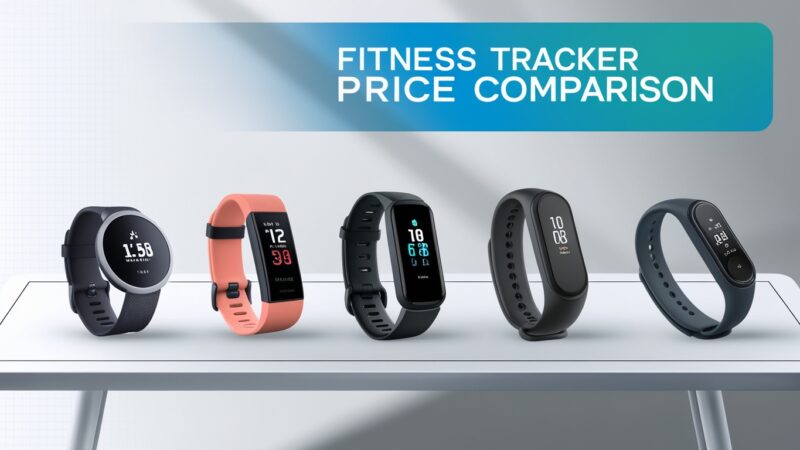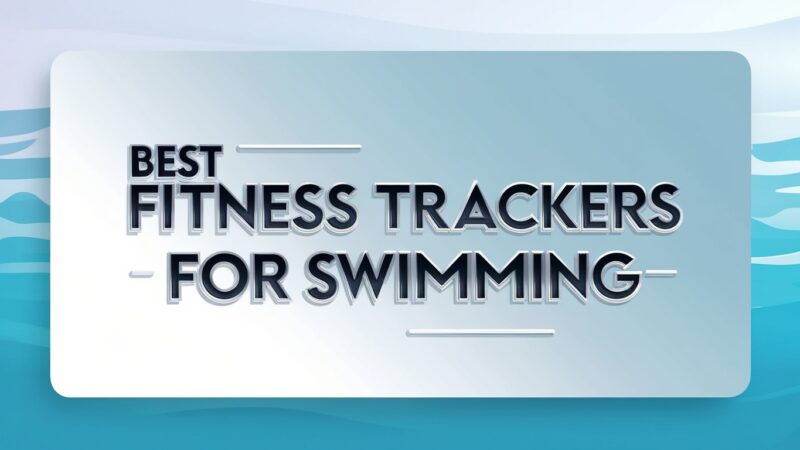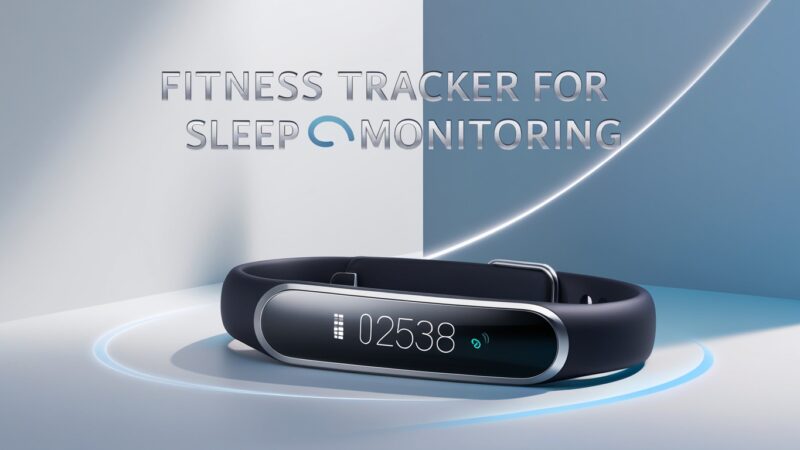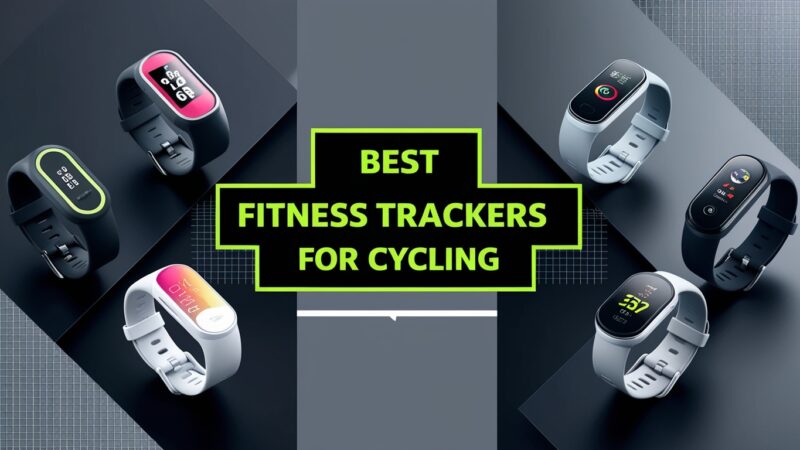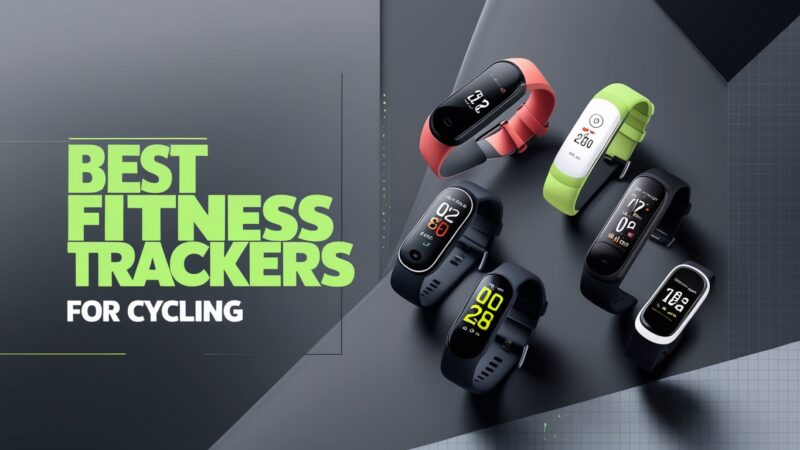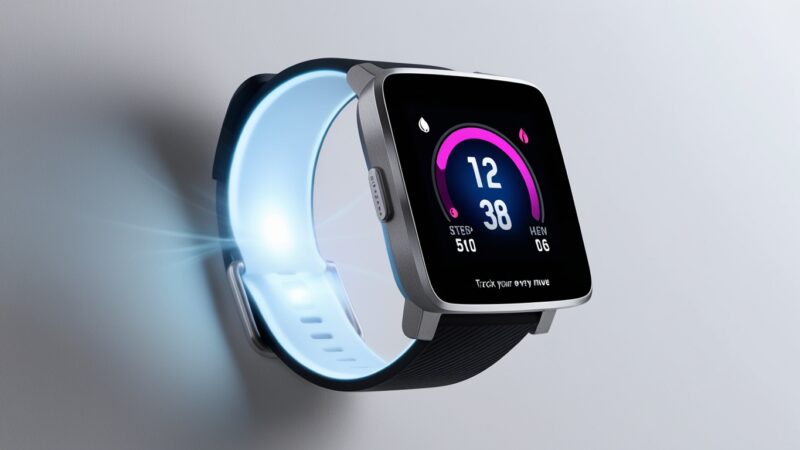Explore Fitbit vs Garmin: The Ultimate Fitness Tracker Showdown
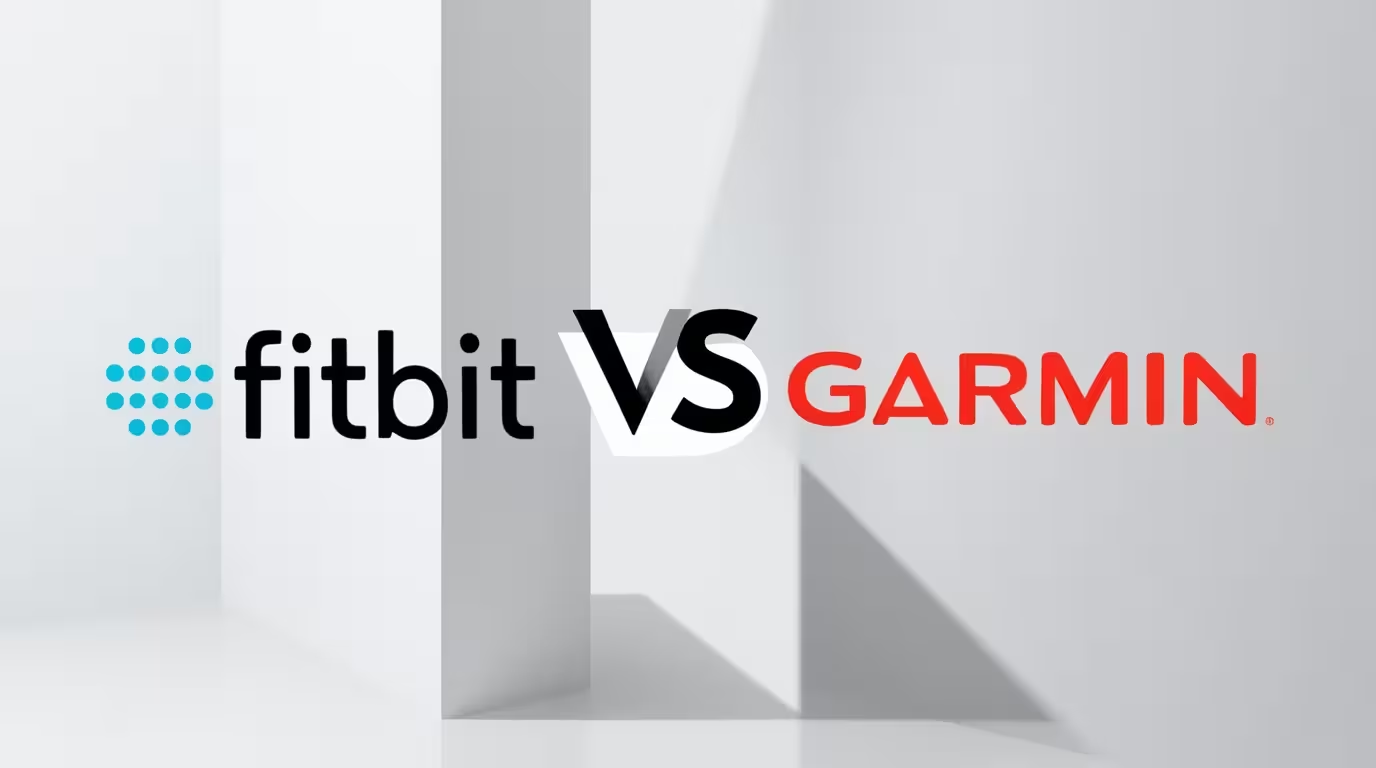
Fitbit vs Garmin: The Fitness Tracker Showdown
Fitness Tracking Capabilities
So, you’re trying to decide between Fitbit vs Garmin for your fitness tracking needs? It’s a big decision, given how both brands have carved out their own unique spaces in the market!
First off, Fitbit devices are like the friendly guide on a health journey. They’ve got this super user-friendly interface that makes tracking your steps, calories burned, distance, and active time a breeze.
Garmin’s a bit different; it’s the data-loving nerd of the two. They target serious athletes much more, offering advanced metrics such as VO2 max, recovery times, and training loads—a treasure trove for those who take their fitness seriously.
Step Tracking
When it comes to keeping tabs on your steps:
- Fitbit generally takes the cake in accuracy for daily step counting.
- Garmin might be a bit off for casual day-to-day activities but is still reliable overall.
Heart Rate Monitoring
Now, let’s talk heart rates! Both brands offer reliable monitoring, but Garmin edges ahead with more advanced features. They also provide insights into your heart rate variability and stress levels, making them a solid choice during intense workouts.
Sleep Tracking
Sleep tracking? That’s where Fitbit shines! They’ve got detailed insights into different sleep stages, quality, and duration.
- Garmin’s sleep features are decent but don’t go as in-depth as Fitbit.
Activity and Workout Tracking
When it comes to activity and workout monitoring, both Fitbit and Garmin pull their weight, just in slightly different ways.
Activity Tracking
Fitbit devices excel at tracking daily activities. They automatically detect different exercises like walking, running, and cycling.
Garmin, though? They concentrate on dedicated workouts and sports, making them a favourite with more focused fitness fans.
Workout Tracking
If you’re into serious workout tracking:
- Garmin truly shines with its sport-specific modes and advanced metrics like pace and distance.
- Fitbit also provides tracking but it’s more geared toward general fitness activities.
Smartwatch Features
Who doesn’t love a good smartwatch? Both Fitbit and Garmin have upped their game, blending fitness tracking with smart capabilities.
Fitbit Smartwatches
When thinking about Fitbit smartwatches like the Versa and Sense, you’ll find:
- Mobile payments
- Smartphone notifications
- Third-party app integration
Perfect for anyone seeking an all-around smartwatch experience!
Garmin Smartwatches
Garmin’s lineup, including the Forerunner and Fenix series, boasts more advanced fitness and navigation features:
- Built-in GPS
- Navigation tools
- Connectivity with various devices and apps
Battery Life and Durability
Ah, battery life and durability! Essential factors in your Fitbit vs Garmin choice.
Battery Life
Typically, Fitbit’s devices have shorter lives, lasting around 4-7 days on a single charge.
Garmin, on the other hand, can often survive for weeks without a charge, making them ideal for those lengthy outdoor adventures.
Durability
Speaking of ruggedness, Garmin’s devices are built to take a beating, perfect for outdoor activities. Fitbit watches are durable enough for daily wear and tear but might struggle in extreme conditions.
Pricing and Availability
Both brands offer a range of price points catering to various budgets.
Fitbit Pricing
Fitbit devices usually fall into the mid-range to budget-friendly category, making their fitness trackers and smartwatches accessible to a large audience.
Garmin Pricing
Garmin tends to command higher prices, particularly with its advanced features and GPS capabilities. The extra cost often reflects the sophisticated attributes they offer.
Comparing the Features: Fitbit and Garmin
Design and Appearance
Design-wise, we’ve got two contenders with their own unique flair. Fitbit leans toward a sleek, minimalist vibe with touchscreen displays and various band options like leather, metal, and silicone.
Garmin, in contrast, presents a rugged, sporty look, often with traditional watch designs and physical buttons for navigation—a favourite among those who enjoy a more classic feel.
Activity Tracking
Both brands are top-notch in activity tracking but cater to different audiences. Fitbit devices tend to excel at tracking steps, distance, and calories burned.
Garmin’s strength lies in its advanced metrics, ideal for fitness enthusiasts looking to push their boundaries.
Step Tracking
In the step-tracking arena:
- Fitbit may have a slight edge in accuracy, particularly during activities like walking or running.
- Garmin devices are accurate, though some casual users may prefer Fitbit.
Heart Rate Monitoring
Garmin typically shines with heart rate accuracy, offering more detailed data compared to Fitbit.
Sleep Tracking
With sleep tracking, Fitbit provides comprehensive sleep analysis, while Garmin offers advanced metrics like respiration rates and sleep scores.
Smartwatch Features
When looking at smartwatch features, you’ll find:
- Both Fitbit and Garmin offer solid smartphone connectivity.
- Garmin puts in the extra effort with built-in GPS and advanced voice commands.
Smartphone Connectivity
Fitbit and Garmin devices easily integrate with smartphones:
- Fitbit relies on Bluetooth, while some models include Wi-Fi to expand syncing options.
- Garmin often utilizes both Bluetooth and ANT+, connecting to a broader range of compatible devices.
Mobile Payments
In terms of mobile payments, both brands have made progress:
- Garmin’s payment solution is more widely accepted and user-friendly than Fitbit’s.
Battery Life
Battery life is crucial, with both brands offering impressively lasting devices. Generally, Fitbit lasts about a week, while Garmin can clock some serious time with models lasting up to 14 days.
Pricing and Value
Price signals are essential; Fitbit generally offers affordable options starting around £50, reaching up to £250 for their flagship models.
Garmin sits at a higher price point, with devices ranging from about £150 to well over £500 for premium models.
With Fitbit, you’re getting a solid all-rounder that’s user-friendly and budget-conscious. If you’re in the market for advanced features and don’t mind spending a bit more, Garmin is worth considering.
Tracking Metrics: Which Brand Offers More Insights?
Fitness Tracker Showdown: Fitbit vs. Garmin
Let’s discuss insights and metrics—both Fitbit vs Garmin offer ways to ramp up your fitness game!
Fitbit stands out with accurate step-counting and heart rate monitoring, while Garmin delivers an all-round fitness metric breakdown, including VO2 max and body battery insights.
Fitness Tracking Capabilities
When deciding what to track, both brands have you covered:
- Fitbit hits the mark with step counts, active minutes, and calories burned.
- Garmin swoops in with serious metrics that serious athletes can’t ignore.
Connectivity and Smartwatch Features
As for connectivity, Fitbit has made strides with their latest models like the Fitbit Sense and Versa 3, integrating features like built-in GPS and contactless payments. Garmin’s robust features outperform Fitbit’s, blending fitness and smartwatch functionalities seamlessly.
Data Visualization and Insights
Both brands come with companion apps that help you track your progress:
- Fitbit’s app shines for its user-friendliness, ideal for a quick glance at your progress.
- Garmin Connect focuses on deep data analytics, allowing dedicated users to delve deeper into performance stats.
Battery Life and Durability
Battery considerations remain a hot topic for Fitbit vs Garmin. Typically, Garmin receives high marks for longer battery sustainment, alongside rugged designs making them appealing for outdoor endeavors. Fitbit might have shorter battery lives but remains durable enough for daily wear.
Price and Value
For price and value, Fitbit is generally the more wallet-friendly choice, while Garmin carries a heftier price tag for its plethora of advanced features.
Battery Life and Connectivity: Fitbit vs Garmin
Fitness Trackers: Battling for Battery Life and Connectivity
Let’s put Fitbit vs Garmin under the microscope for battery life and connectivity!
Battery Life Showdown
Fitbit typically boasts battery lives of 4-7 days, with standout models like the Charge 5 promising up to 7 days. Garmin, however, takes it further with many devices lasting 7-14 days, pushing the limits even into the remarkable 17 days with the Forerunner 945 LTE.
Connectivity Capabilities
Both brands have solid connectivity features:
- Fitbit sticks mostly to Bluetooth connections but offers some Wi-Fi options on high-end models.
- Garmin’s devices often come equipped with both Bluetooth and ANT+ connections, making syncing easier and more versatile.
Cellular Connectivity
A notable edge for Garmin is cellular capabilities. Models like the Forerunner 945 LTE come with LTE built-in, allowing some freedom by leaving your phone behind while staying connected.
Fitbit has yet to dive into this world, so you’ll need your smartphone for notifications with their devices.
Data Sync and Companion Apps
Companion apps are where both brands shine:
- Fitbit’s app wins for its clean design and social features. Easy to follow your goals and compete with friends!
- Garmin’s app does an extraordinary job of detailed analytics and customization for athletes.
Choosing the Right Fitness Tracker
Ultimately, it all boils down to what fits your needs. Garmin leads on battery life and comprehensive connectivity, while Fitbit wins on a user-friendly experience and social features.
No matter your choice, both Fitbit and Garmin offer innovation and reliability that can help you stay healthy and active. The fun part is figuring out which one lines up best with your lifestyle!
You can now buy my E-Book on Discount for only $4! If you need personal help or a program, you can reach out to me on Instagram!
New Fitness Features in Fitbit vs Garmin
As Fitbit vs Garmin continues to evolve, both brands have rolled out new functionalities to enhance your fitness tracking experience.
Monthly Challenges and Community Engagement
Fitbit has recently implemented features that focus on community involvement:
- Monthly health challenges among friends and family help keep you motivated.
- Social engagement options have seen an upgrade, allowing users to support each other in their fitness journeys.
Garmin Coaching and Workout Planning
Garmin has launched a coaching feature aimed at athletes:
- Adaptive training plans based on your performance metrics, which adjust as you improve.
- Garmin Coach is a new service that connects users to tailored training plans designed by professional coaches.
Health Metrics Integration
The integration of health metrics into both ecosystems has skyrocketed:
- Fitbit has introduced features like Blood Oxygen Monitoring (SpO2) to their premium models.
- Garmin now includes metrics such as Pulse Ox and Body Battery, giving you a detailed view of your recovery and energy levels throughout the day.
Additional Sleep Features
Sleep tracking has seen advancements:
- Fitbit’s latest trackers can now provide insights into sleep stages more accurately, including REM sleep analysis.
- Garmin offers a new sleep score feature to help users gauge their sleep quality on a scale, encouraging healthier sleep habits.
Music Storage and Streaming Capabilities
Music features are becoming a must-have:
- Fitbit now allows users to store and play music offline on select models like the Fitbit Sense, along with Deezer and Pandora integration.
- Garmin offers music storage options too, with compatibility for Spotify and Amazon Music, making it easy to listen to your playlists during workouts.
Market Trends and User Preferences
Understanding user preferences is key in the Fitbit vs Garmin debate. Recent studies show:
- Fitbit users reflect a greater interest in challenges, community interaction, and an overall focus on health and wellness.
- Garmin users lean more toward serious athletic training, with a clear preference for detailed metrics and sport-specific functionalities.
Summary and Takeaway
So, as we dive deeper into the Fitbit vs Garmin battle, it’s clear that both brands are fine-tuning their offerings to cater to their target audiences. Fitbit is ramping up the social fitness components, whereas Garmin is honing the serious athlete’s experience, enhancing performance analytics, and coaching capabilities.
Choosing between them ultimately comes down to whether you’re looking for community engagement and simplicity or serious data and in-depth training metrics.
Stay tuned and choose wisely, because the right tracker can be a game changer in your health journey!
For more information, explore our website. You can find answers to common questions in our FAQ section, learn more about us on our Home page, discover the range of services we offer in the What We Provide section, get in touch with us through the Contact page, and stay connected with us on our Socials.
You can now buy my E-Book on Discount for only $4! If you need personal help or a program, you can reach out to me on Instagram!

